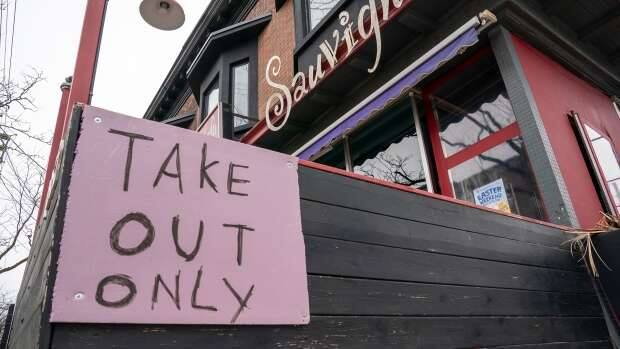Ontarians who have gotten used to being able to order beer, wine and spirits as part of their takeout orders will have the option to keep doing as such, even after the COVID-19 pandemic is over.
The Ford government introduced an emergency order in March that permitted authorized restaurants and bars to include alcohol with food delivery orders as an approach to help an industry that was battling in the midst of the different limitations that had been set up to restrict the spread of COVID-19.
While all of the various emergency orders put into place as part of the state of emergency will eventually be lifted, it appears that takeout booze is here to stay.
At a press conference at Queen’s Park on Wednesday morning, Associate Minister of Small Business and Red Tape Reduction Prabmeet Sarkaria confirmed that the Ford government is working on the necessary legislative changes to permanently allow restaurants and bars to add beer, wine and spirits to takeout orders going forward.
The news comes after Toronto City Council voted to formally request that the province extend the measure through 2021 as part of a five-point plan to support struggling restaurants and bars.

“We have had the opportunity to hear from small businesses and restaurant owners that were impacted by this pandemic and this has been a measure that has really helped them so we are committed to making it permanent,” Sarkaria said. “We are working with the Attorney General’s office, who will outline the steps (that need to be taken).
The announcement that takeout booze will eventually be made permanent comes as Sarkaria gets set to table a wider package of legislation to reduce red tape for small businesses and help them stay afloat amid the continuing fallout from COVID-19.
The plan includes a commitment to permanently allow 24/7 deliveries to retail stores, restaurants and distribution facilities.
It also promises grants of up to $1,000 to help small businesses in the service sector with two to nine employees offset the cost of acquiring Personal Protective Equipment (PPE).
The total cost of that program to taxpayers is pegged at $60 million.
“In the 100 roundtables (with small businesses) I have had almost every single one of them mentioned a need for PPE reimbursement so this is really targeting those who are impacted the most,” Sarkaria said.
“These are the businesses that have been the hardest hit from a cash flow perspective and they need the support to help cover these expenses.”
The Alcohol and Gaming Commission of Ontario previously said that restaurants and bars would no longer be able to sell alcohol with takeout orders after Dec. 31.
Photo credit: THE CANADIAN PRESS/Frank
News source: CP24











